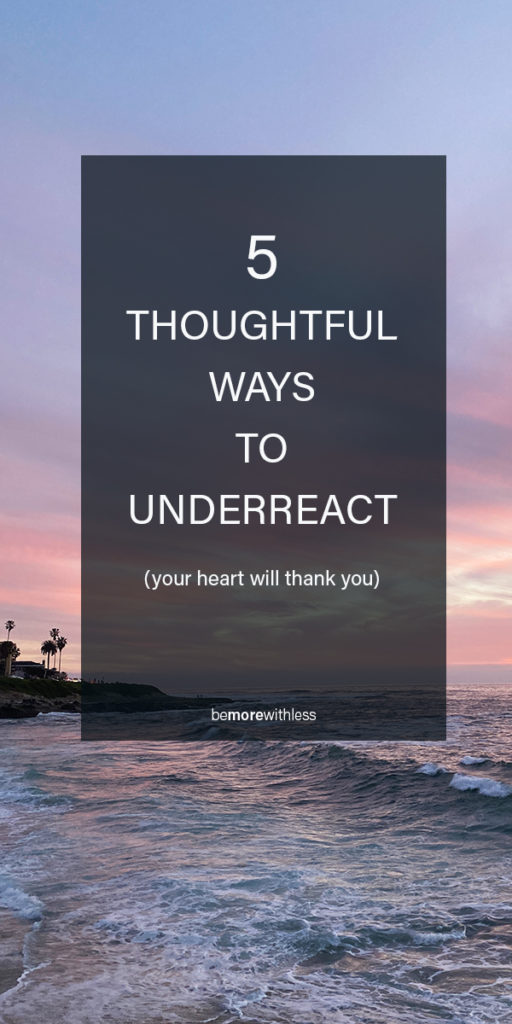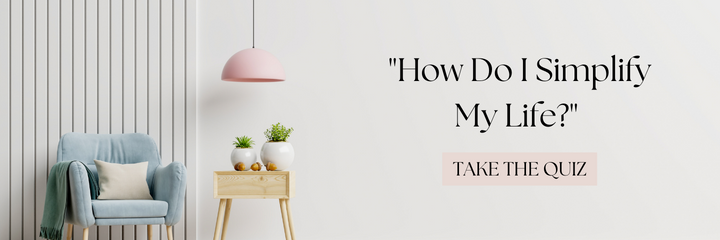Have you ever overreacted? Did you ever kind of lose your mind about something that didn’t warrant a total melt down? I have.
My overreactions never helped. In fact, they always added fuel to the fire; more drama, stress, confusion and chaos. Not only didn’t they help the things I was reacting to, but my overreacting wore me out.
By overreacting, it was like experiencing the same thing twice. Once when it happened and again when I brought all of my outrage to the situation. With that, my heart felt double the weight of any circumstance.
Today, underreacting is my superpower.
I’m not suggesting you dismiss your feelings about something, but for the sake of your health, thoughtfully consider how you turn those feelings into action.
If you want to protect your heart, your sleep and the people around you, consider the following 5 thoughtful ways to underreact.
5 Thoughtful Ways To Underreact (Instead of Overreacting)
1. Don’t take things personally.
This one thing will almost always help you underreact. Before you make it all about you and create stories about how the situation you are dealing with is going to impact your life, stop. Tell a different story. Imagine that it has nothing to do with you, that it isn’t about you. Usually, it’s not.
2. Determine if an action or reaction from you is even appropriate.
Most things don’t require (or deserve) your attention and energy. I have to remind myself this about 84 times a day. When you choose not to react at all to gossip, drama and controversy for the sake of controversy, you conserve your precious time and energy for what really matters.
Begin to notice how things unfold when you remove yourself. Without your struggle, control or attempt to fix something, how does it turn out? When you see that things have a way of working themselves out, you will feel more comfortable, relieved even to let go more often.
3. Do what you can, then let go.
Consider the best course of action, do what you can and then let go. Don’t insert yourself all the way through, every step of the way. You may have to come back and make adjustments but you don’t have to obsess and control and give everything up to handle most things (that’s overreacting).
4. Recognize what else is going on when you overreact.
Do you overreact out of habit or because you are one of the following:
- Hungry
- Hurt
- Tired
- Drunk
- Overwhelmed
- Sick
- Worried
All of those things are going to lower your ability to underreact. Take care of yourself so you are experiencing those things less or not at all.
5. Separate the outside from the inside.
There will always be outrageous, unfair, and upsetting things happening around you. When the world feels chaotic, remember that while much of it is outside of your control, what is in your control is you. Just because everything is chaotic around you, doesn’t mean things have to be chaotic within you.
Once you implement these suggestions, overreacting to things won’t resonate with you anymore. Underreacting will better serve your heart and the hearts around you. When you remove the over from your reacting, you can move more quickly towards a reasonable solution without wearing yourself out in the process.
Your heart will thank you.


